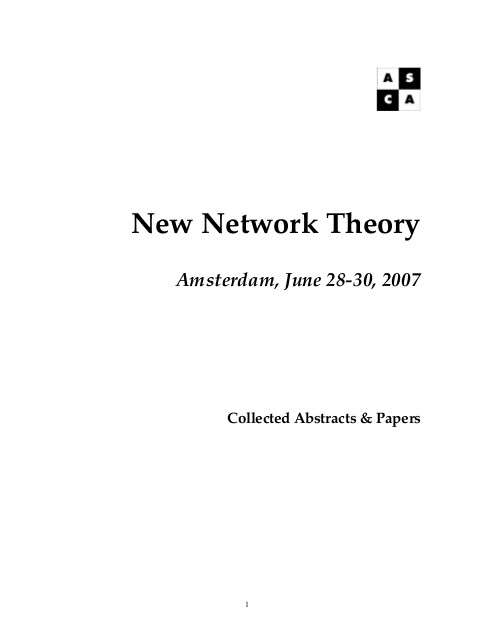Thomas Bartscherer, Roderick Coover (eds.): Switching Codes: Thinking Through Digital Technology in the Humanities and the Arts (2011)
Filed under book | Tags: · art, artificial intelligence, dance, knowledge, ontology, semantic web, technology

“Half a century into the digital era, the profound impact of information technology on intellectual and cultural life is universally acknowledged but still poorly understood. The sheer complexity of the technology coupled with the rapid pace of change makes it increasingly difficult to establish common ground and to promote thoughtful discussion.
Responding to this challenge, Switching Codes brings together leading American and European scholars, scientists, and artists—including Charles Bernstein, Ian Foster, Bruno Latour, Alan Liu, and Richard Powers—to consider how the precipitous growth of digital information and its associated technologies are transforming the ways we think and act. Employing a wide range of forms, including essay, dialogue, short fiction, and game design, this book aims to model and foster discussion between IT specialists, who typically have scant training in the humanities or traditional arts, and scholars and artists, who often understand little about the technologies that are so radically transforming their fields. Switching Codes will be an indispensible volume for anyone seeking to understand the impact of digital technology on contemporary culture, including scientists, educators, policymakers, and artists, alike.”
Publisher University of Chicago Press, 2011
ISBN 0226038319, 9780226038315
448 pages
PDF (updated on 2012-9-3)
Comments (2)New Network Theory: Collected Abstracts and Papers (2007)
Filed under proceedings | Tags: · actor-network theory, aesthetics, assemblage, internet, locative media, network culture, networks, social movements, web, web 2.0

On 28 – 30 June 2007, the Institute of Network Cultures and Media Studies, University of Amsterdam and the Amsterdam School for Cultural Analysis, organized the international conference New Network Theory. The object of study has shifted from the virtual community and the space of flows to the smart mob. When the object of study changes, so may the distinctions that dominate, particularly the schism between place-based space and place-less space, both organized and given life by networks. New Network Theory explored contemporary network theory that suits and reflects the changes to the objects of study that come to define our understandings of network culture – a post-Castellsian network theory, if you will, that takes technical media seriously.
themes: network theory, the link, locative media, networks and subjectivities, networking and social life, art and info-aesthetics, actor-network theory and assemblage, networks and social movements, mobility and organisation, anomalous objects and processes, and the global and the local.
speakers: Katy Börner, Wendy Chun, Noshir Contractor, Florian Cramer, Rob Stuart, Jean-Paul Fourmentraux, Matthew Fuller, Valdis Krebs, Olia Lialina, Noortje Marres, Anna Munster, Warren Sack, Alan Liu, Ramesh Srini-vasan, Tiziana Terranova, Siva Vaidhyanathan, and many others.
PDF
Three additional papers (Verheij, Cramer, Goriunova)
Adorno, Benjamin, Bloch, Brecht, Lukács: Aesthetics and Politics (1977/1980)
Filed under book | Tags: · 1930s, 1940s, 1950s, aesthetics, art, marxism, politics

The most remarkable aesthetic debates in European cultural history, with an afterword by Fredric Jameson.
No other country and no other period has produced a tradition of major aesthetic debate to compare with that which unfolded in German culture from the 1930s to the 1950s. In Aesthetics and Politics the key texts of the great Marxist controversies over literature and art during these years are assembled in a single volume. They do not form a disparate collection but a continuous, interlinked debate between thinkers who have become giants of twentieth-century intellectual history.
by Theodor Adorno, Walter Benjamin, Ernst Bloch, Bertolt Brecht, and Georg Lukács
Afterword by Fredric Jameson
First published in 1977
Publisher Verso, London, 1980
ISBN 860917223, 902308386
221 pages
PDF (updated on 2020-12-10)
Comments (4)
